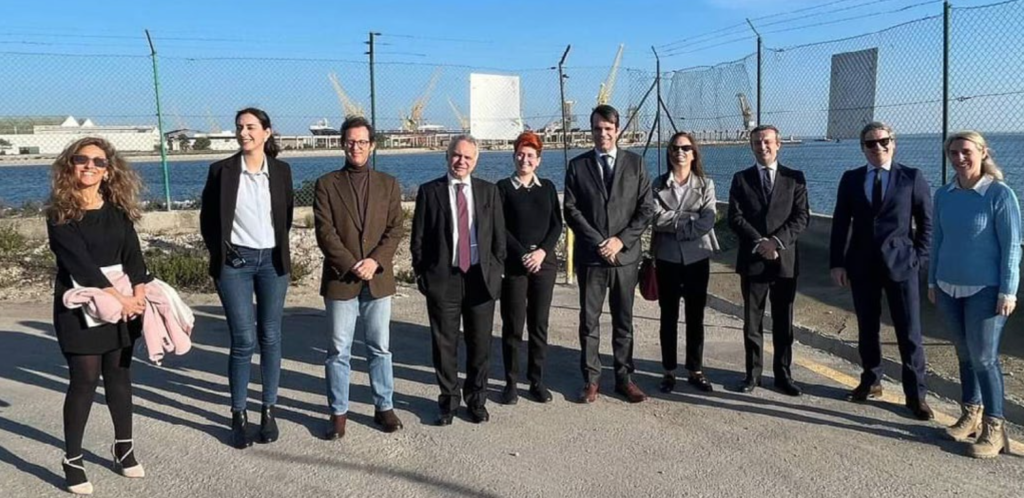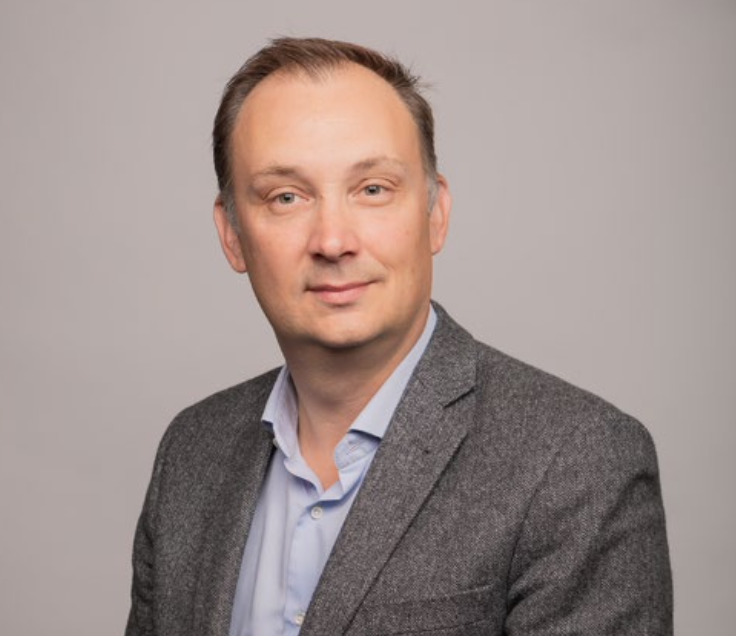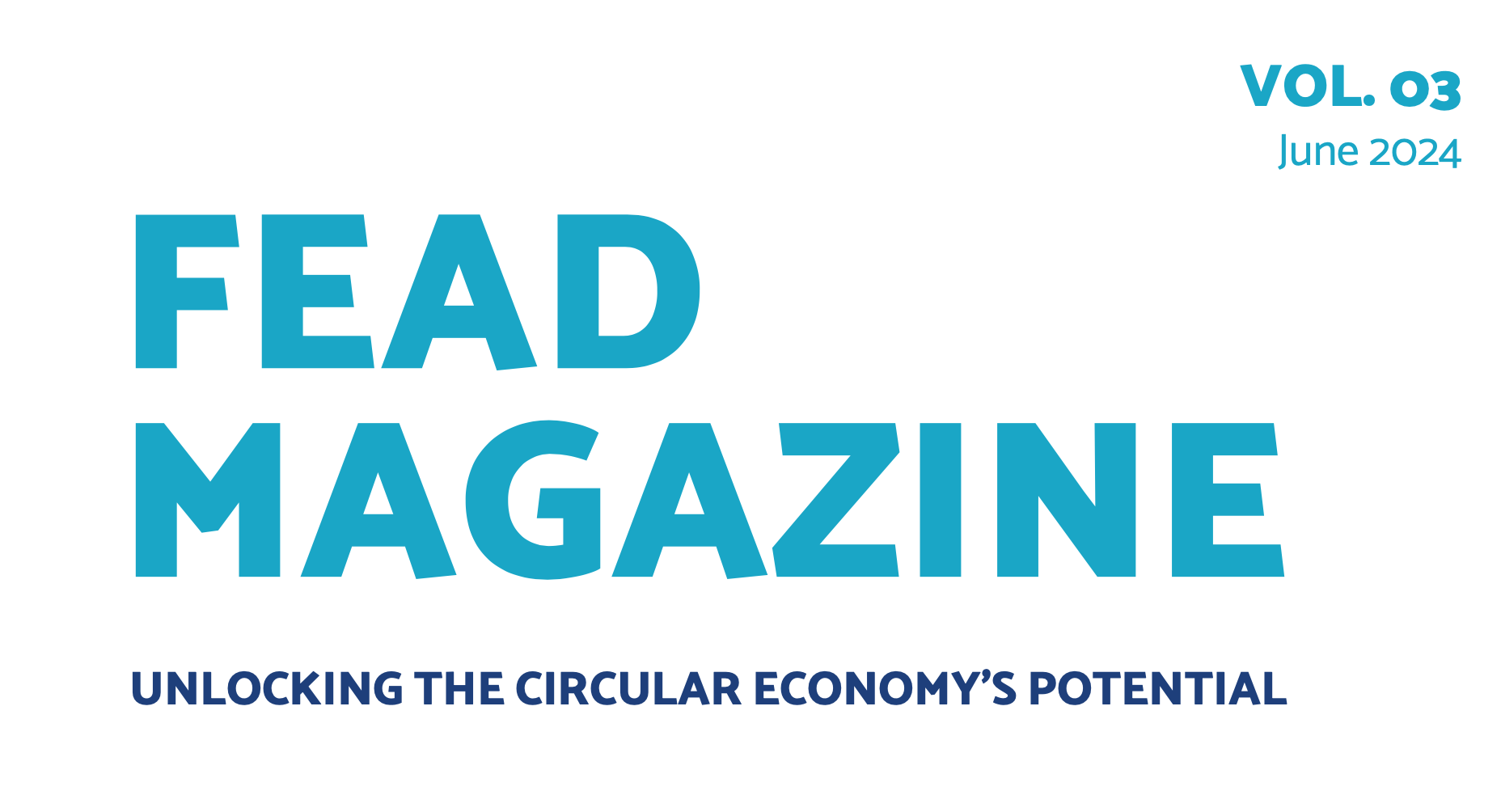Ricardo Vidal, President of the board of Associação Circulo
The Portuguese Association, Circulo – Association for the Circularity of Special Waste, was set up with the main objective of actively contributing to the improvement of the efficiency of the waste sector, helping the country to fulfil the European Union’s targets and proposing future measures aimed at improving the treatment of special waste.
We are the only Portuguese organisation to be a member of FEAD, which we joined in recognition of its importance. The association’s priority is the Special Waste Agenda, the promotion of thecircular economy and ensuring strict segregation of hazardous waste, protecting the environmentand public health.
Waste management in Portugal faces significant challenges that require urgent action. The mobilisation of institutions and legislators is crucial, as is the active collaboration of political agents, market operators and civil society. Only through
joint effort will it be possible to achieve a more efficient and sustainable waste management system.
Let’s look at some indicators: the latest review of Portuguese environmental policy, the ‘Environmental Implementation Review 2022’ (a reporting tool designed to improve the imple-mentation of EU environmental laws and policies) was carried out by the European Commission and shows that the performance of the circular economy and waste management in Portugal is well below the European Union average and that there is a growing and significant number of cases of non-compliance and infringements of European legislation against Portugal. On the other hand, the circular (secondary) use of materials in Portugal was 2.4% in 2014 and fell to 2.2% in 2020, when the European average is 12.8%. The European Court of Auditors concluded that we are the fourth country in the EU with the least circular economy and that the waste sector in Portugal contributed to 9 % of greenhouse gas emissions, which is three times more than the European standard. INE’s Environment Statistics from 2022, released this April, state that in 2022 all specific waste streams will see a decrease in the ratio of recovered waste.
Here are some examples of Portugal’s situation regarding the management of some specific waste streams:
- Construction and demolition waste (CDW) makes up more than 1/3 of the total waste produced in the EU and when not segregated at source, CDW can contain critical substances such as solvents and asbestos. In the EU, recy-cling and material recovery rates vary from less than 10 per cent to more than 90 per cent. Portugal is the third worst performing member state according to Eurostat data.
- End-of-Life Vehicles (ELV) sector, the management body responsible for this sector has for the last two years failed to meet the national reuse/recovery target (95%) for ELVs set out.
- and EU legislation. There are also problems with the segregation and treatment of special and hazardous waste, such as Persistent Organic Pollutants (POPs).
- Waste Electrical and Electronic Equipment, Portugal has repeatedly failed to meet its targets: the recycling rate achieved in 2021 by the organisations managing this waste stream stood at 14.5%, the same as in 2020, when the legal target is 65%.
Portugal is facing major sustainability challenges.
For example, the compliance with the Persistent Organic Pollutants (POPs) Regulation. Portugal is obliged to ensure the proper management of waste containing or contaminated by POPs in facilities capable of segregating the waste in such a way that the POPs content is destroyed or irre-trievably transformed.
CIRCULO intends to play an active role in the national waste management agenda, considering that this waste stream can create economic value, respond to the challenges of Industry 5.0 as a key driver in the economic and societal transition and lead the digital, energy and green transition.
This innovative approach offers solutions to the problems faced in waste management in Portugal, allowing the transformation of these materials into valuable resources and contrib-uting to a more sustainable and resilient future.
CIRCULO also aims to be a leading partner in the management of special waste, collaborating with the government, NGOs, national and interna-tional organisations and political players.

Secretary of State for International Trade and Foreign Investment Bernardo Ivo Cruz, visiting ECO-OIL’s facilities on 2 February 2024 © Círculo
People at the core of the circular economy

Ecological transition is all the more social
Renewable energy, recycling, waste and water treatment are key to the circular economy. While the green potential of circular models is clear, less attention has been paid to their human impacts. These activities are local and human based; people are the heart of our businesses. Transitioning to a circular economy means a path to different ways of thinking, working, and living. This upcoming new world, to which FEAD vision 2030 is our guideline, calls for a new kind of rela-tionship within and out of companies.
Our people, our future
We all defend one principle: health & safety. We want our employees and subcontractors to get back home safe every day. Progresses have been made, frequency and severity rates are at their lowest.
Working conditions have improved, especially in waste collection and sorting.
But there is still much to be done.What’s next? Working on painful jobs might result in enhanced human, with exoskel-etons, chips. Virtual reality is already part of training programs. What do we expect from the metaverse? Will artificial intelligence have its part? Surely yes! How? We’re only at the beginning. In terms of security and working conditions, AI will help us anticipate hazardous situations, prevent risks and accidents.
Attract and retain talent
People and companies have strong adaptation abilities, especially in crisis periods; Covid has proved it. Remote working has spread among white collar workers at an unexpected speed. It brings more flexibility and saves time.
Though we still have face to face meetings and remember the importance of coffee breaks, long distance journeys are no longer a preference. It is not only a matter of personal organisation but above all fatigue, road risk, stress.
This post Covid era also demonstrates that concerns have shifted, and professional-per-sonal life balance is more prevalent, especially for younger workers but not only. Expectations regarding employers and managers have increased. In a dynamic employment market, attracting and retaining talents have become issues.
